Mozambique: People still in panic after terrorist raids in Memba - AIM report
Hidden debts: AIM reports
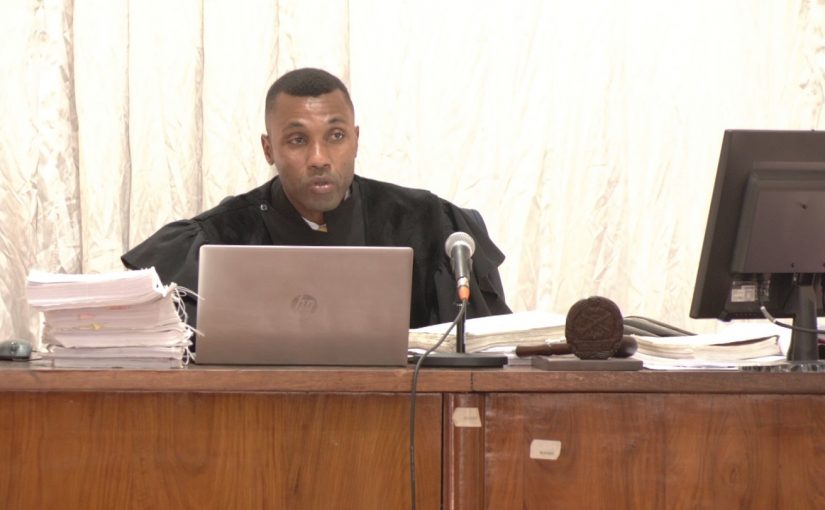
File photo: TVM
- Translator, consultant or unofficial intelligence collaborator?
Judge Efigenio Baptista, of the Maputo City Court, on Wednesday insisted that the trial of the 19 people accused of involvement in Mozambique’s “hidden debts” will remain open to the press.
At the start of the Wednesday morning session, one of the defence lawyers had queried the wisdom of hearing the case in open court, since it dealt with “sensitive” matters (several of the defendants are officers of the State Security and Intelligence Service, SISE).
Baptista said the matter had already been decided, in a dispatch he had issued before the start of the trial. That dispatch stated that “these hearings are public and the media can do its job”.
He admitted that there is a conflict between the freedom of expression and the right to information, on the one hand, and the right of accused persons to their good name, on the other. Both were enshrined in the Mozambican constitution, and so judges had to choose which right would prevail, on a case by case basis.
“I decided this trial must be public, because the interests of the State are in question, involving huge sums of money”, said Baptista. “If we were to close the court, then there would be enormous speculation”.
The reason for holding trials in public, he added, “is so that the people can monitor what is happening in the courts”.
Baptista took his stand on the basis of the Constitution, article 65 of which guarantees that trials should be public, with the exception of cases that involve “personal intimacy” (such as rape), or when “powerful reasons of security of the hearing, or of public order, advise the exclusion or restriction of public access”. Neither of these considerations apply to the current case.
Despite this clear constitutional protection, journalists have sometimes found themselves banned from courts for no good reason – AIM reporters have, on occasion, even been banned from taking notes in court.
Judge Baptista has not only allowed the media to cover the trial, but is also permitting live radio and television broadcasts of the proceedings. The last time such live broadcasts from a Mozambican court occurred was during the trial of the assassins of investigative journalist Carlos Cardoso in 2002/2003.
One of the defence lawyers claimed that only bits of the trial should be public – he said a law of 2018 allows defendants to bar anyone from filming or recording them.
This is true – but Baptista said there is no justification for it in the Constitution “and the laws should always be in conformity with the Constitution”.
So the journalists can stay and the trial will remain public. “I’m not going to change anything, the decision has already been taken”, declared Baptista.
As for agents of SISE, he insisted that they enjoy no special privileges. The lawyers for the SISE officers among the defendants had already tried, and failed, to have their clients freed from preventive detention. They claimed the law on the status of SISE personnel states that, if charged with criminal offences, SISE agents are allowed to reply to the charges in freedom, rather than in prison cells.
Baptista pointed out that this only applied to crimes allegedly committed while in the pursuit of SISE duties, not to cases of embezzlement or money-laundering.
Court will call Chang as witness
The Maputo City Court has agreed to call Mozambique’s former Finance Minister, Manuel Chang, as a witness in the case of the country’s largest financial scandal, the so-called “hidden debts”.
The debts result from the loans of over 2.2 billion US dollars obtained in 2013 and 2014 from the European banks Credit Suisse and VTB of Russia by three fraudulent, security-linked Mozambican companies, Proindicus, Ematum (Mozambique Tuna Company) and MAM (Mozambique Asset Management).
The loans were only possible because the government of the day, under the then President Armando Guebuza, issued illicit loan guarantees. The effect of the guarantees was to make the Mozambican government liable to repay the loans, if the companies went bankrupt.
It was Chang who signed the loan guarantees, even though they breached the ceiling on guarantees established by the 2013 and 2014 budget laws, and violated a clause in the Constitution which makes incurring such debts dependent on parliamentary approval.
Since December 2018. Chang has been under police custody in South Africa, while the South African authorities decided whether to send him for trial in Maputo or in New York – both the Mozambican and the US authorities had requested his extradition.
But on Monday South African Justice Minister Ronald Lamola decided Chang will be returned to Mozambique, where he faces charges of abuse of office, violation of the budget laws, fraud by deception, embezzlement, money laundering, and membership of a criminal association.
Since Chang will soon be in Mozambique, assuming the extradition goes ahead, he will be available to testify in the current trial of 19 people charged with offences arising from the “hidden debts.
On Tuesday evening, at the end of the second day of the trial, the Mozambique Bar Association (OAM), which is attending the trial as an “assistant” of the public prosecutor, suggested that Chang’s testimony could be crucial.
Prosecutor Sheila Marrengula pointed out that Chang has already been heard once, in the early stages of the investigation, before he was detained in South Africa. But she raised no objection to calling him as a witness.
Nor did the defence lawyers, and so judge Efigenio Baptista announced that, when he returns to the country, Chang will be notified to appear as a witness. His testimony will be slotted into the calendar for the trial, which is expected to last for at least 45 days.
Translator, consultant or unofficial intelligence collaborator
One of the allegedly key participants in Mozambique’s “hidden debts” scandal, Teofilo Nhangumele, admitted on Wednesday that he had obtained a residence visa for Abu Dhabi on false pretenses.
On the third day of the trial of 19 people accused of embezzlement, money-laundering and other crimes related with the “hidden debts”, Nhangumele said that Jean Boustani, a key salesman for the Abu Dhabi based group Privnvest had signed a contract with him as a consultant,
But to receive the money he was promised, he had to open a bank account in Abu Dhabi. This entailed pretending to be a resident of Abu Dhabi with a bona fide job there. A visa was arranged for him in 2012 under the pretense that he was an engineer. Nhangumele denied that he had done this, and blamed Privinvest for the deception,
But this fraudulent qualification was enough for him to open a bank account, into which Privinvest paid what are delicately known as :consultancy fees”, but are actually part of the bribes that Privinevest paid to Mozambicans involved in the scheme.
Sometime later in 2012 he returned to Abu Dhabi and found that the Privinvest money had indeed been deposited in his account. He did not tell the court exactly how much money was deposited.
Nhangumele said he first met Boustani at a meeting held in the Ministry of Science and Technology in Maputo where he presented the capacities of the company Abu Dhabi Mar, part of the Privinvest Group, to provide equipment for coastal protection. He said he went to the meeting to assist his friend Cipriano Mutota with communication in English. At the time, Mutota was director of the Studies and Projects Office of the State Security and Intelligence Service (SISE).
This story asks us to believe that a high ranking SISE officer, who had spent much of his career in contact with South African exiles of the African National Congress (ANC), did not have a sufficient command of English to understand the Privinvest presentation.
Nhanguimele thus enters the saga as a translator. Mutota, however, in his testimony on Tuesday, called Nhangumele an “unofficial SISE collaborator”, Nhangumele preferred to call himself an “independent consultant”.
He said he became the “focal point” for communications between Privinvest and SISE, in the person of Mutota.
Despite his supposedly unofficial status, Nhangumele not only attended high level meetings, but even went on Mozambican government delegations to Privinvest facilities in Germany and Abu Dhabi. He was greatly impressed with the electronic surveillance facilities of Privinvest. At its Kiel facility, in Germany, he could see satellite images of the entire Mozambican coast, and everything that was happening in the Mozambique Channel, including piracy.
“If you could see this, you would all change your minds about the project”, he claimed. “I don’t think many Mozambicans have seen what we saw in Kiel”.
But when Nhangumele attended a meeting at the Defence Ministry in 2011 or 2012 (he told the judge he wasn’t sure of the date), the then Defence Minister (and now President), Filipe Nyusi, found his attendance strange.
Shortly afterwards Mutota told Nhangumele he was being removed from the project because he was not a member of the Mozambican defence and security forces. “I got angry, and asked what would happen to the project, since it was me who did all the calculations. Mutota said he didn’t know”, he added
Nhangumele said Nyusi obliged him to hand over his part of the coastal protection project to Henriques Matlaba, of the Defence Ministry company, Mount Binga.
But Boustani offered Nhangumele a contract as a consultant. He was clearly on very good terms with Boustani, since he referred to him constantly as “Jean”. So Nhangumele remained involved in the finances of the project, meeting with officials of the Finance Ministry and of the bank Credit Suisse,
“Although I had been removed from the Mozambican side of the project, I was still working with Boustani”, he said. The excuse for Nhangumele’s continued presence at Finance Ministry meetinsg was his mastery of English.
When Mutota found out that Nhangumele had received ”fees”, from Privuinvest, but he had received nothing, he was furious. Mutota was demanding money, and Nhangumele remarked “If I had given money to Mutota, I wouldn’t be in court today”.
According to Mutota, after repeated contacts with both Nhangumele and Boustani, he was promised two million dollars of Privinvest money, but only received 980,000 dollars.
Nhangumele claimed that, after his contract with Boustani expired, he had no further involvement with the Privinvest projects. He said he only heard about the most famous of the fraudulent companies financed under the “hidden debts” scheme, Ematum (Mozambique Tuna Company) through the press. “The original project had nothing to do with tuna”, he told the court.


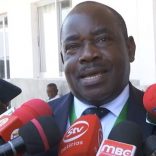
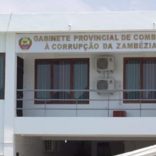


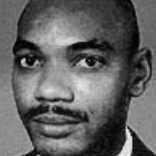
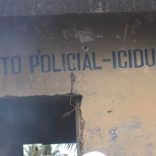




Leave a Reply
Be the First to Comment!
You must be logged in to post a comment.
You must be logged in to post a comment.